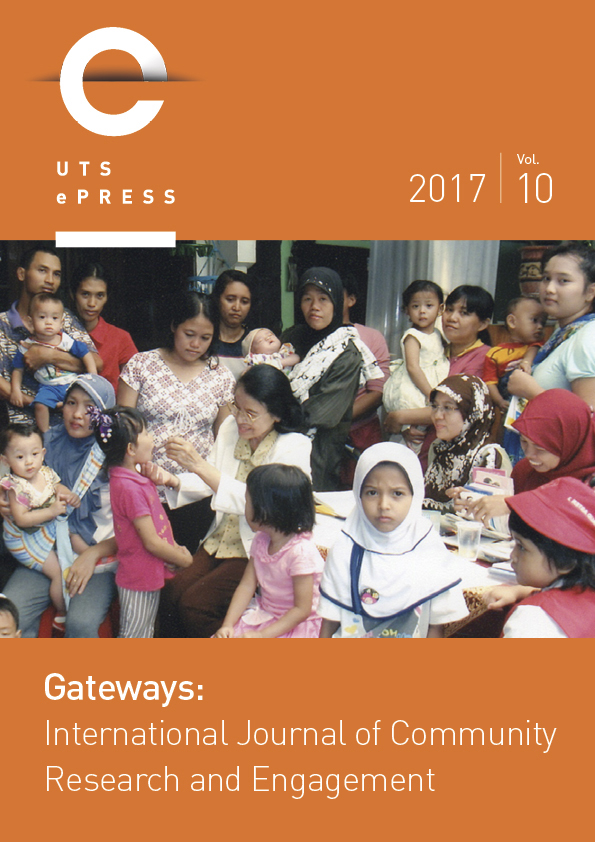Finding the community in sustainable online community engagement: Not-for-profit organisation websites, service-learning and research
Main Article Content
Abstract
The research used a three-phase ethnographic action research approach. The first phase was a content analysis and review of the editing records of 135 organisational websites hosted by the SOCE project. The second phase was an online survey sent to 145 community organisation members responsible for the management of these websites, resulting in 48 responses. The third phase consisted of semi-structured, in-depth interviews with 18 of the website managers from 12 of these organisations. The research revealed the extent to which organisations were unable to manage their websites and found that the proposed solution of an online community would not be useful. More importantly, it suggested other useful strategies which have been implemented. In Furco’s (2010) model of the engaged campus, public engagement can be used to advance the public service, teaching and research components of higher education’s tripartite mission, but this requires a genuine and sustained process of listening to the community of which the institution is a part. The article argues that, with recent changes to government policy reducing funding to the community sector, an important role for universities is to engage with their communities in both teaching and research. Service-learning projects are often evaluated for learning and teaching outcomes and valued as aligning with university policy on community engagement, but there is potential to do more harm than good for community partners. The experience with the SOCE project demonstrates that effective community engagement must be based on research of what the community partners genuinely want and then assessed against those objectives. Research and community engagement should not be framed as mutually exclusive but understood as part of the same process.
Article Details

This work is licensed under a Creative Commons Attribution 4.0 International License.
Authors who submit articles to this journal from 31st March 2014 for publication, agree to the following terms:
a) Authors retain copyright and grant the journal right of first publication with the work simultaneously licensed under a Creative Commons Attribution License that allows others to share and adapt the work with an acknowledgement of the work's authorship and initial publication in this journal.
b) Authors are able to enter into separate, additional contractual arrangements for the non-exclusive distribution of the journal's published version of the work (e.g., post it to an institutional repository or publish it in a book), with an acknowledgement of its initial publication in this journal.
c) Authors are permitted and encouraged to post their work online (e.g., in institutional repositories or on their website) prior to and during the submission process, as it can lead to productive exchanges, as well as earlier and greater citation of published work (See The Open Access Citation Advantage Service). Where authors include such a work in an institutional repository or on their website (ie. a copy of a work which has been published in a UTS ePRESS journal, or a pre-print or post-print version of that work), we request that they include a statement that acknowledges the UTS ePRESS publication including the name of the journal, the volume number and a web-link to the journal item.
d) Authors should be aware that the Creative Commons Attribution (CC-BY) License permits readers to share (copy and redistribute the work in any medium or format) and adapt (remix, transform, and build upon the work) for any purpose, even commercially, provided they also give appropriate credit to the work, provide a link to the license, and indicate if changes were made. They may do these things in any reasonable manner, but not in any way that suggests you or your publisher endorses their use.
For Volume 6 (2013) and before, the following copyright applied:
Articles published by UTSePress are protected by copyright which is retained by the authors who assert their moral rights. Authors control translation and reproduction rights to their works published by UTSePress. UTSePress publications are copyright and all rights are reserved worldwide. Downloads of specific portions of them are permitted for personal use only, not for commercial use or resale. Permissions to reprint or use any materials should be directed to UTSePress.
